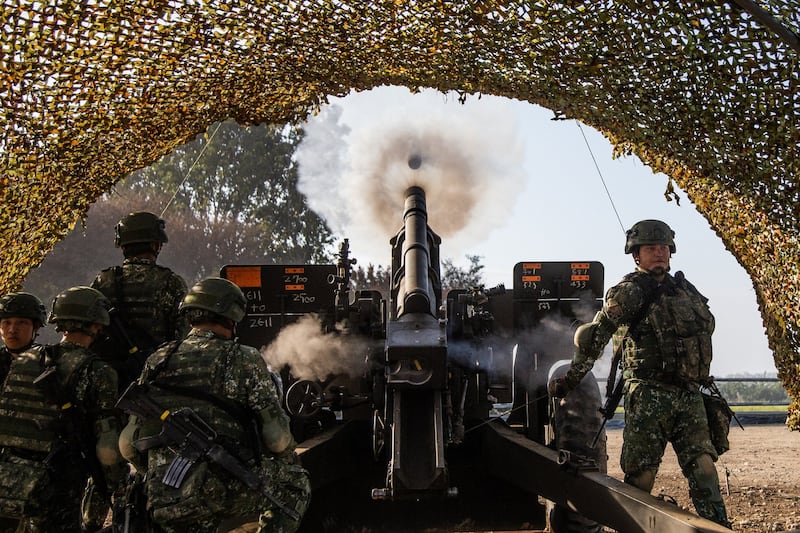China is unlikely to invade Taiwan in the next five years, a survey released this week showed.
But Beijing is capable of executing "a law enforcement-led quarantine and a People's Liberation Army (PLA)-led blockade of Taiwan," according to experts who took part in a survey by the Center for Strategic and International Studies (CSIS) released on Monday.
A quarantine to substantially reduce trade into, and communications with, Taiwan would put significant pressure on the island and could serve as the prelude to a blockade by the PLA or a full-on amphibious invasion, said the experts.
The new poll – “Surveying the Experts: U.S. and Taiwan Views on China’s Approach to Taiwan” – was released by the CSIS’s China Power Project just after Taiwan elected its new president, Lai Ching-te.
It was conducted from Nov. 28 to Dec. 15, 2023 – before the presidential poll – with the participation of 87 experts, 52 from the U.S. and 35 from Taiwan, all leading academics or former officials.
Invasion unlikely
Responding experts said that in the next five years, “if China seeks to coerce Taiwan, Beijing’s most likely course of action would be a law enforcement-led quarantine of Taiwan.”
But “if China’s goal is to force immediate unification of Taiwan, a PLA-led highly kinetic joint blockade” is the most likely scenario, according to 80% of respondents.
Without U.S. intervention, most experts did not believe Taiwan could resist a blockade for more than three months.
Just 26% of U.S. respondents and 17% of Taiwanese respondents agreed that China has the military capability to effectively launch an amphibious invasion of Taiwan within the next five years.
The rest had much lower confidence in China’s ability as such invasion would require “a much larger commitment of military forces than a quarantine or blockade, and the operations involved would be significantly more complicated.”

Taiwanese experts seemed to have a lower perception of the China threat compared to U.S. experts – only 51% of them believed that China could sustain a high-intensity conflict for more than a year versus 71% of American respondents.
Among U.S. experts, 44% believed China would be willing to detonate nuclear weapons against U.S. or coalition forces during a Taiwan conflict, but only 11% of Taiwanese experts thought the same.
U.S. support
While virtually all U.S. respondents were confident that their country would intervene militarily in the case of a Chinese invasion of Taiwan, 9% of Taiwanese respondents said they were not confident.
And 11% of Taiwanese experts were not confident that the U.S. would intervene if China conducted a joint sea and air blockade of Taiwan.
Some 63% of U.S. experts believed that America would step in against a quarantine of Taiwan, but only 40% of their Taiwanese peers thought so.
The survey’s authors explained that these lower levels of confidence stemmed from various factors, the first of which was that “U.S. support for Taiwan is conditional.”
“The goal of U.S. policy toward Taiwan has long been to avoid moves by either side of the Taiwan Strait to unilaterally shift the status quo,” they said, “and if Taiwan’s actions precipitate a conflict, the United States may be disinclined to intervene.”
The second factor lies in China’s campaign of misinformation and disinformation in Taiwan about U.S. willingness to support Taipei.
“These efforts are aimed at causing the Taiwan public to lose hope and feel that unification is their only option,” the survey authors said.
Beijing, on the other hand, “has little doubt that Washington would defend Taiwan,” they added.
Edited by Taejun Kang and Mike Firn.
